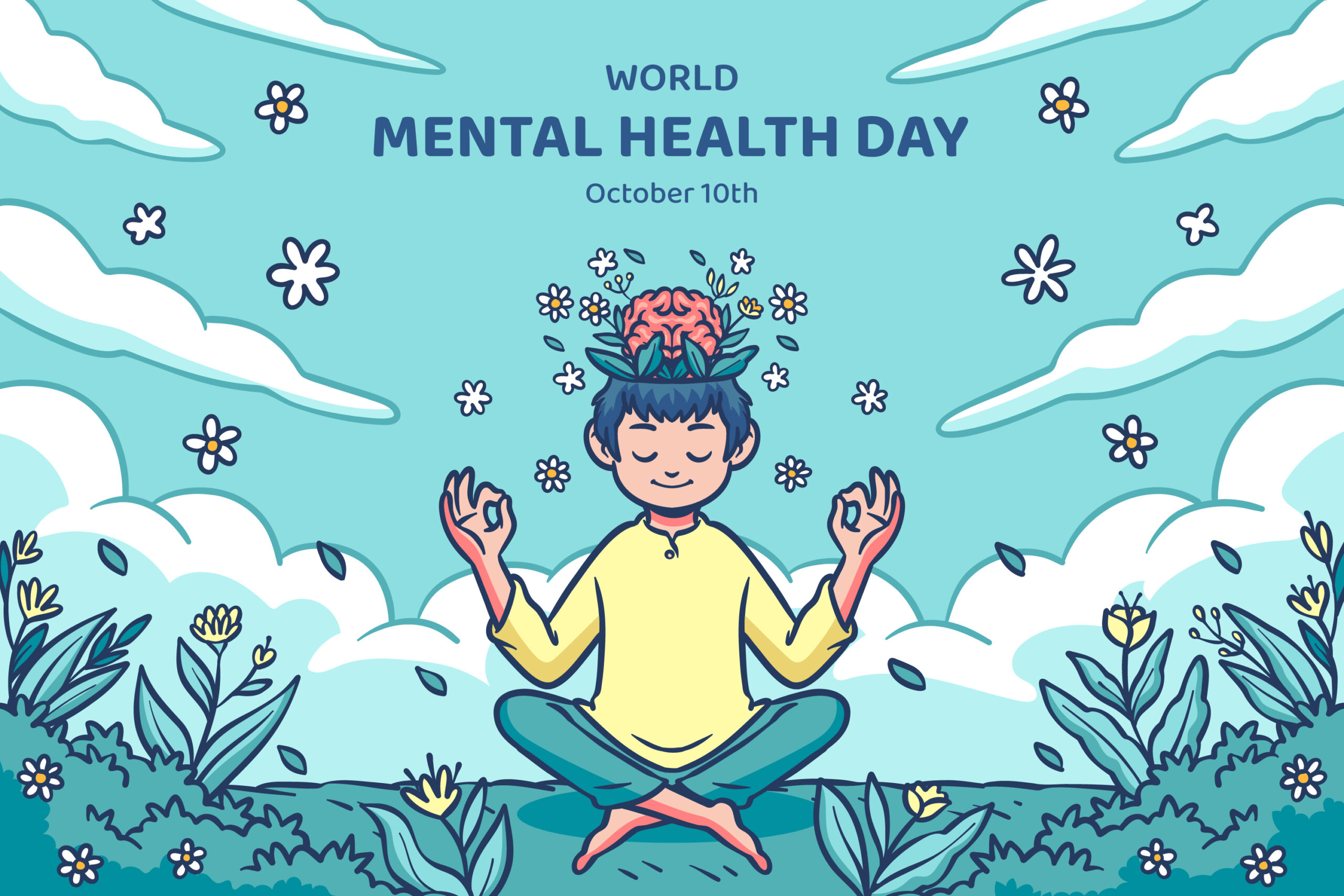World Mental Health Day, celebrated annually on October 10th, is a global observance that raises awareness about mental health and well-being, and advocates for better mental health care. This comprehensive guide will explore various dimensions of mental health, from its definition and significance to practical strategies for fostering well-being.
What is Mental Health?
Mental health is a state of well-being where individuals realize their full potential, cope effectively with life’s challenges, work productively, and contribute meaningfully to their communities. It is not simply the absence of mental illness, but a positive state of mental and emotional health.
Why Does Mental Health Matter?
Mental health profoundly influences our thoughts, emotions, behaviors, and relationships. It equips us to manage stress, build meaningful connections, and make healthy choices, ultimately contributing to a longer and happier life.
The Link Between Mental and Physical Health
Mental and physical health are inextricably linked. Mental distress can manifest as physical symptoms, such as headaches and muscle tension, while physical illnesses can lead to mental health challenges like depression and anxiety.
The Continuum of Mental Health
Mental health exists along a continuum, from flourishing to struggling. Everyone experiences fluctuations in their mental well-being, and it is important to remember that it is okay to face challenges.
The Difference Between Mental Health and Mental Illness
Mental health encompasses overall well-being, while mental illness refers to diagnosable conditions that significantly impact thoughts, feelings, and behaviors. Examples of mental illnesses include anxiety, depression, and bipolar disorder.
Mental Health Conditions Around the World
Mental health conditions are a global concern, with the World Health Organization estimating that one in four individuals will experience a mental health condition at some point in their lives.
Regional Disparities and Their Implications
Significant regional disparities exist in mental health care access and resources. Low- and middle-income countries often experience higher mental health challenges coupled with limited access to quality care.
Stigma and Discrimination
Stigma surrounding mental health can deter individuals from seeking help, leading to delays in diagnosis and treatment, which can worsen mental health conditions.
Economic Impact
The economic burden of neglecting mental health is substantial, costing the global economy billions annually. This encompasses lost productivity, absenteeism, and healthcare expenditures.
Factors Influencing Mental Health
Several factors influence mental health, including:
- Biological factors: Genetics and brain chemistry can play a significant role in mental health.
- Environmental factors: Physical surroundings, traumatic experiences, and childhood events can impact mental well-being.
- Psychological factors: Thoughts, emotions, and behaviors interact to influence mental health.
- Social factors: Strong social support systems can promote mental well-being, while isolation and loneliness can have detrimental effects.
Strategies for Promoting Mental Well-being
To foster mental well-being, consider the following strategies:
Practice self-care:
Prioritize self-care by ensuring adequate sleep, a healthy diet, regular exercise, and time spent in nature.
Build resilience:
Strengthen your ability to bounce back from adversity through mindfulness, relaxation techniques, and problem-solving skills.
Connect with others:
Social support is vital; spend time with loved ones, join social groups, or engage in volunteer work.
Seek professional help:
When necessary, professional help in the form of therapy, counseling, or medication can be immensely beneficial.
Nurturing Mental Health Across Life Stages
World Mental Health Day needs evolve through different life stages:
Children and adolescents:
Early intervention and prevention are crucial for lifelong mental health. Parents can support children by fostering a loving environment, teaching coping skills, and monitoring their mental health.
Adults:
Balancing responsibilities and self-care is essential for adults. Set realistic goals, take breaks, and prioritize exercise, meditation, and time in nature to manage stress.
Seniors:
Staying socially active, engaging in meaningful activities, and maintaining a healthy lifestyle are key to nurturing mental health in later life.
Supporting Loved Ones with World Mental Health Day Challenges
If you have a loved one facing mental health challenges:
- Listen without judgment: Be a supportive listener, assuring them of your care and understanding.
- Offer practical support: Assist with daily tasks, errands, or simply provide a caring presence.
- Encourage professional help: If needed, encourage them to seek therapy or counseling for guidance and












